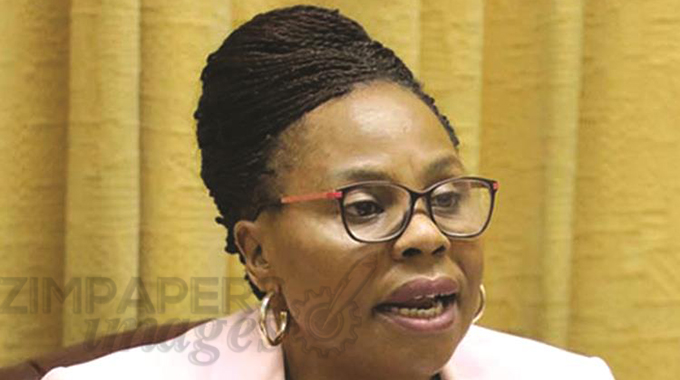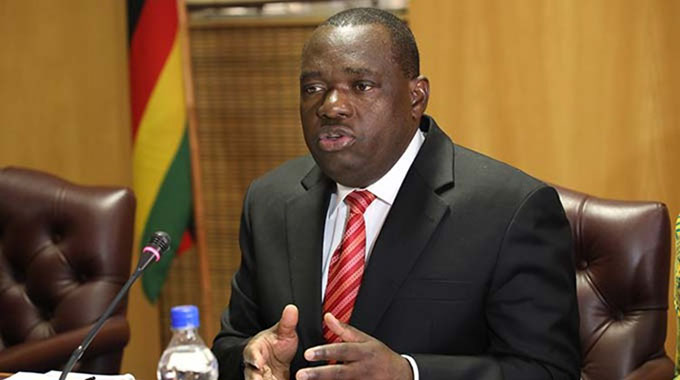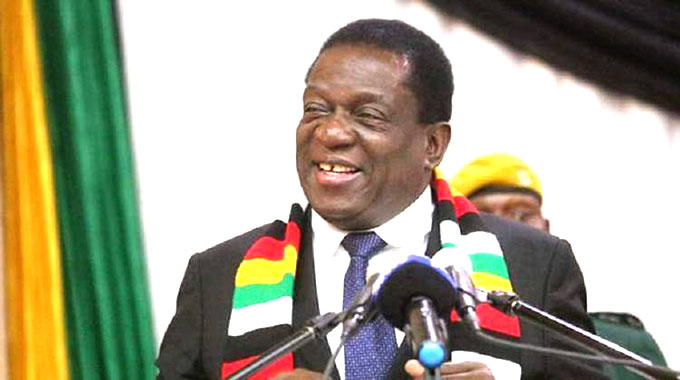Zim scores highly on reforms

Mukudzei Chingwere
Herald Reporter
Zimbabwe is ranked among the top five African reformers, hitting the top spot as the most improved country in the foundation for economic development, by the acclaimed Mo Ibrahim Foundation following the New Dispensation’s socio-economic and political reforms to spur accelerated development.
The foundation was founded in 2006 by British billionaire businessman and philanthropist Mohammed “Mo” Ibrahim and strives to promote good governance on the African continent.
It defines governance as the provision of political, social and economic goods and services that citizens should expect from governments, which in turn, are obligated to provide for their citizens.
President Mnangagwa’s administration has made it clear that it is preparing the country for an upper middle income society by 2030 and the reforms are a key pillar towards economic revival and political and social development which is expected to improve the livelihoods of ordinary people.
Speaking after yesterday’s Cabinet meeting in Harare, Information, Publicity and Broadcasting Services Minister Senator Monica Mutsvangwa said according to the African Governance rankings for this year, Zimbabwe is among the top five reformers over the last decade.

Minister Mutsvangwa
“Zimbabwe recorded significant improvements on the categories of human development, foundation of economic development, security and rule of law,” she said. “Zimbabwe is ranked as the most improved country over the decade in the category of Foundation for Economic Development.
“This category considers public administration, business environment, infrastructure and rural sector in Zimbabwe,” said Minister Mutsvangwa.
Responding to the endorsement of the country’s progress, Foreign Affairs and International Trade Minister Dr Sibusiso Moyo said it showed that Zimbabwe was moving in the right direction and fulfilling its reform agenda which is key to the attainment of an upper middle income economy by 2030.
He said the New Dispensation had implemented a raft of political reforms in fulfilment of the 2013 Constitution and also to give credence to re-engagement efforts.
“It is a good sign that reforms being implemented in this country are getting a third party endorsement from foreign organisations. When we get such recognition, it dispels talk from other sectors that we are a country in crisis.
“Several projects have been done to improve the livelihoods of Zimbabweans, especially the poor. Things like borehole drilling, construction of dams, making sure access to water is a key priority.
“The policies have been pro-people. Even the country’s anti-corruption drive has netted senior Government officials,” said Dr Moyo.
“We are however, not ending there. The vision for the Second Republic is to create an upper middle income economy by 2030 which President Mnangagwa has always been advocating. We will continue implementing policies that will make the country an economic giant,” said Dr Moyo.

Minister, Dr Sibusiso Moyo
The Second Republic has been pressing a consistent message of engagement and re-engagement and opening a new chapter of diplomatic ties especially with countries that were hitherto hostile to Zimbabwe. Dr Moyo recently held fruitful talks with United States Assistant Secretary of State for African Affairs Ambassador Tiboy Nagy which might herald improved relations between the two countries.
The Zimbabwe Anti-Corruption Commission is on a drive to instil integrity, professionalism and honesty which has seen high-profile corrupt people being prosecuted.
On the macro-economic front, the local currency has been introduced and Treasury has managed to stabilise it against major currencies.
President Mnangagwa has championed the implementation of several reforms in areas such as security, the economy, media and justice delivery and this has not gone unnoticed.
Among the notable reforms are the repealing of the Access to Information and Protection of Privacy Act and Public Order and Security Act.
Six new independent television stations have been licensed to operate, and the opening of the airwaves has been hailed as a crucial step towards promoting transparency.
Zimbabwe and the United Kingdom recently signed an Economic Partnership Agreement as relations between the two are appearing to thaw.







Comments